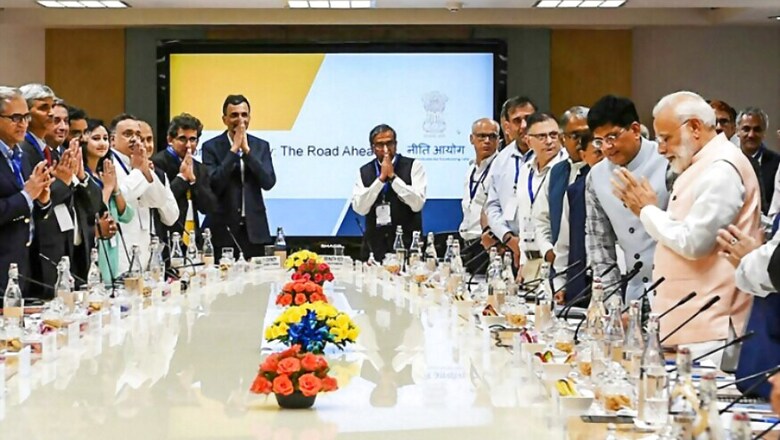
views
Philosopher and author Ayn Rand called America’s big business a “persecuted minority”. The term is truer for India Inc as well as for the rich of our country who are not just persecuted but also routinely maligned, heavily taxed, and regularly jeered all the time by politicians, intellectuals, and other opinion makers. Jawaharlal Nehru University vice-chancellor M Jagadesh Kumar’s snide remark about the insouciance of “our great industrialists” in matters regarding philanthropy is a recent case in point.
In an interview he said: “The government has only a fixed amount to be distributed for various activities. There will always be a fund crunch. Other sectors of society should also participate in higher education. Philanthropy is one thing that is missing here. Some of our great industrialists invest in foreign universities, but not at home. We have a consortium of industries. Can they come forward to build a world-class university? That is one experiment we have never tried.”
The short answer to the question is: Yes. In fact, they did. This was an experiment that they tried with utmost zeal and love but failed — and the failing was on the part of the government.
In the early 2000s, India’s IT prowess was being recognised all over the world; wealthy Indian professionals were not only making their presence felt in Silicon Valley but also trying to contribute to the development of their country. Many of them expressed desire to contribute to their alma maters. Millions of dollars were waiting to be spent on the Indian Institutes of Technology and Management (IITs and IIMs).
But our political masters would have none of it. They have imbibed the dogmas of statism too seriously to be moved by overseas samaritans; politicians can’t let anything happen without their involvement (read meddling) in it. So, the then HRD minister Murli Manohar Joshi played spoilsport. Instead of letting professionals help their IITs and IIMs, he set up a fund — the Bharat Shiksha Kosh. It meant that the donors would not be free to give any fund to an institute of their choice; some bureaucrat sitting in one of the Bhawans littered in Lutyens’ Delhi would take that call.
The professionals were aghast; they raised a hue and cry against such odious officiousness. But, since politicians are usually immune to reason, their protests went unheeded. The result? The very idea was aborted. The BKS received the princely sum of Rs 1,651.
Owing to the obstinacy of our political masters, IIT Madras alumnus Gururaj Deshpande had to redirect his donation of $10 million from his alma mater to the US-based MIT. Subsequently, some relaxation was made in the rules, but the point to be made here is that the problem is not with India’s industrialists; it is with the government.
This is not to say that all the donations of wealthy Indians should have gone only to the IITs and IIMs; it wouldn’t have anyway had the process started, they would also have given money to the schools they studied in, their ancestral villages, native towns, and so on. But so entrenched is statism in the policy framework that neither politicians nor bureaucrats want to let anything — especially anything good — happen on its own.
Politicians of all hues want to control everything, especially where money is involved. They nationalised banks over half a century ago; the nation continues to suffer the ill effects to this day, but there is a consensus among them that there would be no denationalisation. They have colonised corporate conscience, having made corporate social responsibility or CSR mandatory. A few years ago, even nationalism was nationalised: ordinary citizens could wave the national flag only on national holidays.
Politicians want to control nation, society, people, everything; and when their predilection results in bad consequences, they blame everybody and everything but themselves. Their favourite targets are industrialists and entrepreneurs: black money is because of greedy rich people, corruption because of venal businesspersons, and now perpetuation of poverty because of the lack of solicitude on the part of India Inc. It is always the wealth creator who is at fault; rarely, if ever, the politician.
A little respect and concern for the rich will do no harm to the country. As Prime Minister Narendra Modi said in his Independence Day speech, “Those who create wealth for the country, those who contribute in the nation’s wealth creation are all serving the country... They should receive more honour.”
At least, they should not be the targets for condemnation and scorn all the time.
(The author is a senior journalist. Views expressed are personal.)














Comments
0 comment